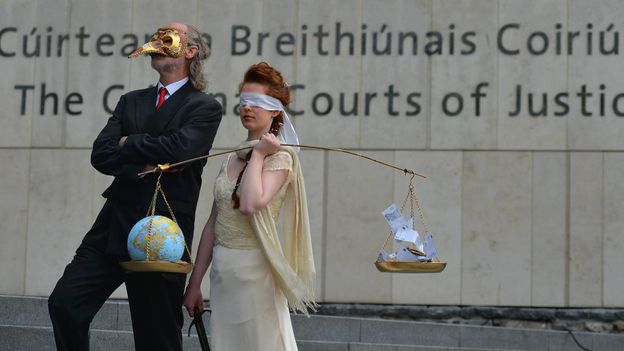As well as cases against governments, cases against corporations have also been gathering pace. One landmark ruling of 2021 was again in The Netherlands, where oil giant Royal Dutch Shell was ordered to cut its emissions by 45% by 2030, compared with 1990 levels. Shell has said it will appeal the ruling, while stepping up efforts to reach net zero emissions by 2050.
A Royal Dutch Shell spokesperson says the company is “rising to meet the challenge of the Dutch court’s ruling” and has committed to reducing its Scope 1 and 2 emissions by 50% by 2030, compared with 2016 levels – these are Shell’s direct emissions from owned or controlled sources, and its indirect emissions from the generation of purchased electricity, steam, heating and cooling.
“Our 2022 business plan will reflect this new target, which we are committed to delivering regardless of whether we win or lose our appeal against the ruling,” the Shell spokesperson says.
These reductions don’t include the emissions from burning Shell’s fossil fuel products, which come under the category of Scope 3 emissions. The Dutch ruling stated that the company also needed to reduce its Scope 3 emissions, but the Shell spokesperson says that these findings hold Shell accountable for a wider global issue.
Paul Benson, a lawyer at Brussels-based NGO Client Earth, which specialises in environmental litigation, says this case “sought to apply the same reasoning [from the ruling against the Dutch government] to a corporate body. That was very novel, and I think a lot of commentators and people in our fairly enclosed legal circle weren’t entirely sure what way the court would interpret [that].”
“I was thrilled for a court to find that a company’s climate policy is in effect inadequate,” he continues, calling the judgment “ground-breaking”. The case was also the first time that a company was ordered to comply with the Paris climate agreement: “[It] shows the Paris agreement has teeth – not just against governments, but against companies.”
This has paved the way for other lawsuits seeking to force corporations to comply with the treaty – Verheyen is currently working on a lawsuit against German carmakers BMW, Mercedes-Benz and Volkswagen which, if successful, would force them to phase out combustion engines by 2030 in line with the Paris goals. “As you would expect, actors in this space and lawyers in our community have been studying the [Shell] judgement very carefully, and sought local reasoning to apply [it] in their jurisdiction,” adds Benson.
“The complaint has not yet been served on us,” says a spokesperson for Daimler, which makes Mercedes-Benz vehicles. “We do not see a basis for a cease-and-desist declaration, because we have long since issued a clear declaration for our ‘lane change’ to climate neutrality: As a car manufacturer, it is our ambition to become fully electric by the end of the decade wherever market conditions allow.”
A BMW spokesperson says: “The BMW Group is firmly committed to the Paris climate agreement and already leads the automotive industry in the fight against climate change.” Meanwhile a Volkswagen spokesperson says that Volkswagen was the first car manufacturer to commit to all targets set by the Paris climate agreement “and is committed to become net carbon neutral at the latest by 2050”, aiming to invest €35bn [£30bn/$40bn] in electric mobility before 2025.












